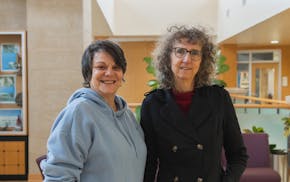By Patsy Stinchfield, PNP
The confirmation of 83 cases of measles in Ohio this month and the recent quick diagnosis of a 19-month-old with measles in Minneapolis, Minnesota's first case of measles this year, brought a timely reminder that the potentially deadly virus has not been eradicated and of the importance of vaccination. Having just wrapped World Immunization Week and National Infant Immunization Week, the importance of immunization is as great as ever.
In fact, the U.S. Centers for Disease Control and Prevention reported today that the 288 cases of measles in the country so far this year are the highest since 2000. The number of cases reported this year is the highest for the first five months of a year since 1994.
I worry that the numbers are a sign of growing credibility for a small band of celebrities and others who have thrown up an online smoke screen of fear of vaccines against measles, whooping cough and other common childhood diseases.
If even a relatively small percentage of Americans buy into this criticism, it would be disastrous. Measles, one of the most contagious airborne diseases, can be extremely serious, leading in rare cases to pneumonia and fatal brain infections. Infants too young to be vaccinated particularly are at risk.
We're fortunate that the child in Minnesota, who actually had one of two measles shots and apparently contracted the disease during a visit to India, was diagnosed within minutes at Children's – Minneapolis. Because the alert medical team picked up the symptoms so quickly, only 16 potentially exposed people had to be notified after the child was quarantined.
Three years ago, as many as 700 contacts had to be reached for some patients during an outbreak at Children's.
What's most frustrating is that it's all so unnecessary.
The virus hasn't changed all that much. It's not like the HIV virus, constantly mutating. No; with measles the culprit purely is social – a breakdown in trust of medical experts whose longtime vaccine advocacy made measles and other common childhood infections a footnote.
Fear-mongering online vaccine critics are not winning, in a classical political sense. Thankfully, more than 90 percent of parents still trust their health care providers and nationally recommended vaccines. If they didn't, we would see frequent headlines about deaths from measles, whooping cough and other diseases.
However, the remaining 10 percent of parents are hesitant, have vague fears and wonder who to trust. They routinely hear or read vehement vaccine bashing in social media circles, which feeds fear and denial – and new outbreaks. New York City and Orange County, Calif., currently are dealing with measles outbreaks.
Measles is so highly contagious that just passing through a clinic waiting room two hours after someone with measles has been there can expose an unvaccinated newborn, which may be devastating.
We all must protect the vulnerable in our community by forming a protective barrier of our own vaccination. That's a simple point seemingly lost on the peddlers of myth and pseudoscience who have infected too many parents with baseless fear of vaccines that protect their own children and the community at large.
Parents should trust health care professionals who urge vaccination on schedule. At Children's, we speak from experience. We have seen children die or become permanently impaired from vaccine-preventable disease. Ask our specialists how many unvaccinated, critically ill children they have cared for, and they would answer "too many to count." And how many they've seen with severe vaccine side effect? You'll get a blank stare, or "I don't recall any; maybe one at most."
We have seen children with measles on a ventilator, fighting for their lives. That's a bitter sight when you recognize that two doses of measles-mumps-rubella vaccine will prevent measles in 99 percent of those vaccinated. There's no contest between the benefits of vaccines and their extremely rare risks.
Before the measles vaccine was developed in the 1960s, there were 2.6 million measles-related deaths per year worldwide. In 2012, that number was down to 122,000, mostly in children younger than 5 in parts of the world where vaccines are scarce or their parents refuse to allow vaccination. The point is that we can't afford to let our guard down in the U.S. or elsewhere. In a global society measles is a mere plane ride away for the unprotected.
The safe, effective and trustworthy action for infants, children, adolescents and adults is to get vaccinated on time for all recommended vaccine-preventable diseases.
Aside from sanitary drinking water, vaccines remain the safest, most-life-saving medical intervention we have to protect our children.
Patsy Stinchfield, PNP, is the director of Infection Prevention and Control and the Children's Immunization Project at Children's Hospitals and Clinics of Minnesota.
After 4 decades in music and major vocal surgery, Jon Bon Jovi is optimistic and still rocking

Lt. Gov. Peggy Flanagan hits the runway at Native Nations Fashion Night

Larry the Cable Guy would rather hang out on his Midwest farm

Yuen: Why do people forgive? It's messy, complex and 'the best form of self-interest'

